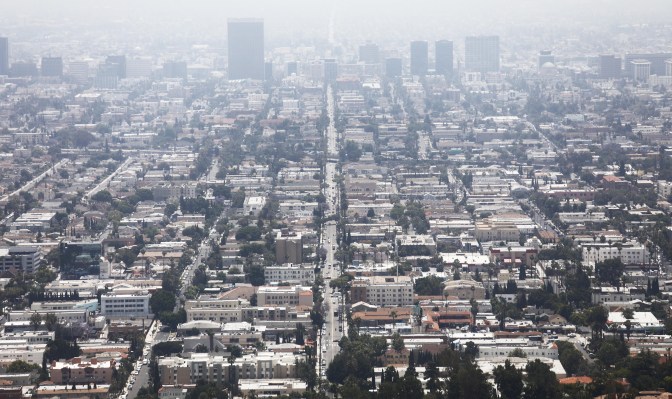As smoke from fires chokes the skies in the western U.S. and pollution chokes much of the world, air quality has become yet another issue for civilization to address.
Industrialization and natural disasters wrought by climate change are spewing more toxic matter into the air, and governments around the world are racing to monitor what the combination of catastrophes and economic growth could mean for their citizens.
The ability to get an accurate measurement of the air quality in their home city of Krakow, Poland is what drove the team of engineers that launched Airly to start their business.
Founded by three engineering students, Michal Misiek, Wiktor Warchalowski and Aleksander Konior, the company combines sensing technologies and software to measure particulate matter and emissions like NOx, SOx, methane and carbon monoxide in the air.
“We are using software and calibration algorithms to provide the best data,” said Warchalowski, who serves as the company’s chief executive officer. The company is more than just collecting air quality. The three engineers have also developed an algorithm that they say can accurately predict air quality for up to 24 hours based on the data they gather.
The current market for air quality assessment tools stands at roughly $4 billion today and will reach $6.5 billion by 2025. Already, Airly’s technology is being used by around 400 cities across Europe and Asia by several universities and corporations, including Philips, PwC, Motorola, Aviva, Veolia and Skanska. The company has also released an API so media, technology and finance companies can access live air quality data. There’s also an app for consumers who want to get a sense of the air out there.
Airparif, the French-based air quality assessment organization, awarded the company an honor for being the most accurate air quality device it had seen.
The company initially started because Warchalowski and his friends were training for a marathon and wanted to see when would be the best time to run so they wouldn’t be exposed to pollution. “When I wanted to run at 5PM and the data was from 2PM it was not up to date,” he said.
More than 2 million people are now using the company’s app. “There are more people like me that need that data,” Warchalowski said.
Airly makes money by selling its device, which is roughly the size of an iPhone, to consumers and communities, and by charging for access to its API. The device costs $300 and API access starts at $1,000, according to Warchalowski.
With revenue in hand and the imprimatur of leading air quality monitoring organizations, its little wonder that Airly was able to attract venture backing from Sir Richard Branson’s and Sir Ronald Cohen’s families; Pipedrive co-founder Martin Tajur; Cherry Ventures partner and former Spotify CMO Sophia Bendz; former Gojek CMO Piotr Jakubowski; and Henkel board member Konstantin von Unger, in a $2 million round led by the newly formed investment firm Giant Ventures .
“By building the leading source of air quality data globally, Airly is creating enormous social and economic value,” said Cameron McLain, a managing partner and co-founder of Giant Ventures.


Recent Comments